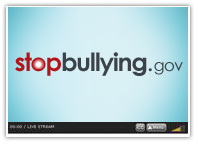A federal government website managed by the U.S. Department of Health & Human Services
200 Independence Avenue, S.W. - Washington, D.C. 20201
It Gets Better - A Message from the Civil Rights Division at the U.S. Department of Justice
The DOJ's Civil Rights Division addresses the recent bullying and harassment of LGBT youth, and those who do not conform to gender stereotypes. The video includes personal stories from Division staff, and explains the Division's authority under federal law to protect students from harassment at school because of their race, national origin, disability, religion, and sex, including harassment based on gender stereotypes. Visit www.justice.gov/crt/edo for more information.
Transcript
IT GETS BETTER
>> PEREZ: My name is Tom Perez, and I am the Assistant Attorney General for Civil Rights at the United States Department of Justice.
Civil rights are a cornerstone of our country’s foundation. They ensure that each of us can live our lives and pursue our dreams, without discrimination.
In the Civil Rights Division, we take your safety and well-being very seriously, and we are dedicated to doing everything within our power to make this world a better and safer place for you.
As the father of three children, as an American who believes every individual deserves to live their life in peace, and as the nation’s chief enforcer of civil rights laws, I have read about the recent incidents involving students who have been bullied with great sadness and anger.
No person, whether they are straight, lesbian, gay, bisexual, or transgender, deserves to be tormented by bullies because they don’t fit some people’s stereotypes of how a boy or a girl is supposed to act.
If you have been targeted for harassment or bullying because of your sexual orientation, because of your gender identity or expression, or simply because your classmates see you as different, I am here to tell you that we in the Civil Rights Division will not stand for it.
Every student in this country has the right to go to school without facing threats, intimidation, or harassment.
My colleagues in the Civil Rights Division and I want you to know that you are not alone, and there are people who can help you today, including here at the Justice Department.
We made this video so you can hear some of our stories, and know that a future with endless opportunities awaits you. We also want you to know that you have a right to go to school without being harassed, and there are federal laws that protect that right. You don’t have to wait until you graduate for it to get better!
>> When I was in seventh grade, there was a group of boys that would tease me and bully me and they would laugh at me when I would speak because my voice was higher-pitched I guess than theirs was.
>> I didn’t act the way that I guess girls acted.
>> I was teased a lot growing up, actually. I felt different, I felt like an outsider, I felt like I didn’t belong.
>> The first time I recall being made fun of, or being told I acted like a girl or was a sissy, I was in third grade and I remember talking to family members, I didn’t quite understand what that meant, and I remember the question I got was, “Were you walking funny? Or did you say something
NOTE: The transcript for this program may have been compiled from uncorrected Closed Captioning.
There are currently no StopBullying.gov/live events scheduled.
Misdirections in Bullying Prevention and Response
August 08, 2012
The Playground is For Everyone
February 27, 2012
February 27, 2012
Stand Up Against Bullying In Indian Country
December 07, 2011
Webisode 10: KB and Melanie Partner Up
May 09, 2011
May 09, 2011
May 09, 2011
May 09, 2011
Webisode 2: Milton's Dreams Are Dashed
May 09, 2011
Webisode 3: Josh North? Last Year's Zero
May 09, 2011
May 09, 2011
Webisode 5: KB Recalls Her Day
May 09, 2011
Webisode 6: Josh Has Lunch with Raven and Milton
May 09, 2011
May 09, 2011
Webisode 8: KB Withdraws, Melanie Gets Dissed
May 09, 2011
May 09, 2011
President Obama It Gets Better
October 21, 2010
Secretary Clinton: "Tomorrow Will Be Better"
October 19, 2010
What is Bullying (ED, Bullying Summit)
September 07, 2010




































